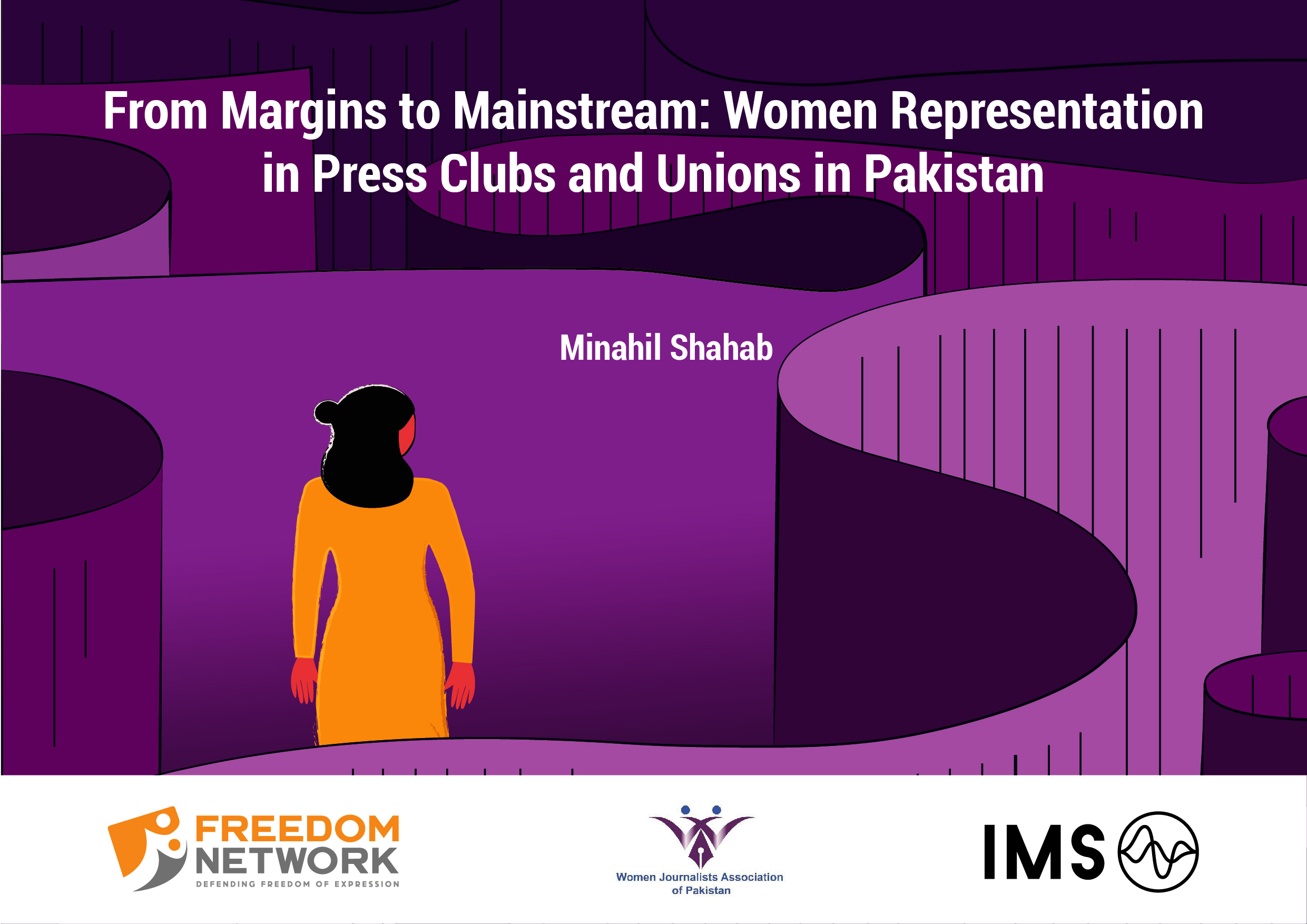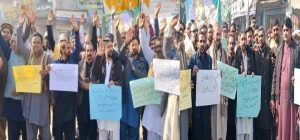Press Statement
ISLAMABAD, 8 March 2025 – A report on women’s representation in Pakistan’s press clubs and journalist unions has found that female journalists remain largely excluded from leadership positions and decision-making roles.
The report, From Margins to Mainstream: Women Representation in Press Clubs and Unions in Pakistan, was released by Freedom Network in collaboration with the Women Journalists Association of Pakistan (WJAP) and International Media Support (IMS). It surveyed 11 cities and found that women made up “only a small fraction” of press club and union memberships.
The report’s release coincides with International Women’s Day, being observed globally on today – 8 March, including Pakistan, underscored the ongoing struggle for gender equity in media leadership. The study aims to assess the extent to which press clubs and unions in Pakistan prioritized gender inclusivity in journalism.
According to the report, some press clubs, such as one in Gujranwala district in Punjab province, have “no female members at all.” In major cities like Karachi, Lahore and Islamabad, women’s representation in press clubs remained below 10% of total membership. Even where women are members, their participation in elections is hindered by “bias, lack of male support, and institutional barriers.”
In journalist unions, Lahore leads with 300 women members, followed by Karachi with 125 out of 1,800, while many cities lack formal records on gender representation in journalist unions. “Women journalists made up only six percent in Rawalpindi-Islamabad and seven percent in Karachi, with minimal presence in Multan,” the report findings said. “Leadership gaps persist, as only Karachi includes women in elected cabinets of unions, while others, including Peshawar and Multan, have none.”
The report surveyed 21 current and former office bearers of press clubs and journalist unions to document their experiences about their efforts to promote gender equity in media in Pakistan. Respondents identified key challenges, including “exclusion from decision-making, limited access to leadership, bias in election processes, and systemic barriers that prevent” women from fully participating in these institutions. Several office bearers reported “facing skepticism about their leadership abilities and a lack of institutional support.”
WJAP founder and convener Fauzia Kulsoom Rana said on the launch of the report: “Despite a decade of efforts since 2014 Women Journalists Association of Pakistan, women’s representation in press clubs and unions remains below 15%, exposing the persistence of patriarchal barriers in the media industry.” She emphasized that there was a pressing need to give working women journalists more constructive roles in press clubs and unions.
The report further found that digital woman journalists faced additional hurdles in securing press club membership due to “outdated membership policies”. The report called for reserved seats for women in press clubs and unions’ elected governing executive bodies, gender ethics policies, and structural changes to ensure greater inclusion.
The report recommends that journalist bodies introduced reserved seats for women, implement anti-harassment policies, and expand membership criteria to include digital woman journalists. “Without such reforms”, the report warns, “press clubs and unions will continue to exclude women from leadership and advocacy roles.”
Click below link to download PDF version of full report

